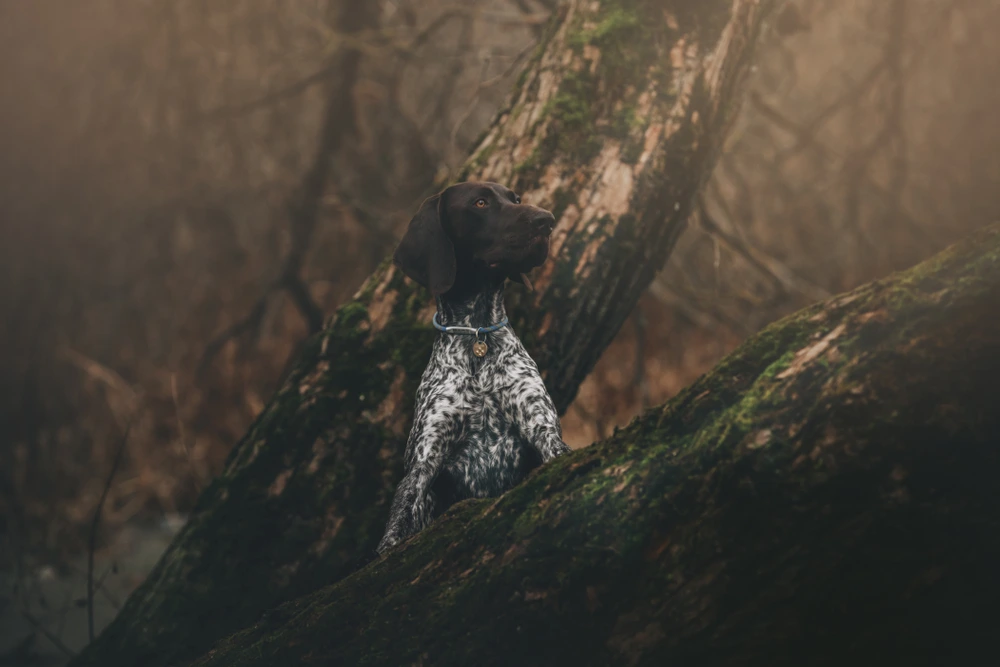If you’re looking for a loyal, energetic, and highly intelligent dog, the German Shorthaired Pointer might be the ideal companion. Known for their versatile abilities in hunting, agility, and even therapy work, this breed has captured the hearts of dog lovers worldwide. But are they a good match for every household? Let’s explore what makes the German Shorthaired Pointer unique and whether they fit your lifestyle.

Content
Origin and Appearance
The German Shorthaired Pointer originated in Germany in the 19th century as a multipurpose hunting dog. Their sleek, muscular bodies and noble bearing make them a standout breed. Typically, they have short, dense coats that come in liver, liver and white, or the rarer German Shorthaired Pointer Black coloration. Their expressive eyes and alert posture hint at their high intelligence and energy levels.
In terms of German Shorthaired Pointer Height, adult males typically stand between 23 to 25 inches tall, while females are slightly shorter, around 21 to 23 inches. Their weight ranges from 45 to 70 pounds depending on sex and build.
Energetic and Trainable Temperament
One of the most remarkable traits is the German Shorthaired Pointer Temperament. These dogs are outgoing, affectionate, and eager to please. They thrive in active households and enjoy being part of daily activities. They’re known for their loyalty and form strong bonds with family members.
However, this also means they can be prone to separation anxiety if left alone too long. Their trainability is high, making them suitable for various roles—from hunting to service dog work. Positive reinforcement and mental stimulation go a long way in managing their behavior.
Exercise Needs and Lifestyle Compatibility
The German Shorthaired Pointer is not a breed for the sedentary. These dogs require plenty of daily exercise—at least an hour or more of vigorous activity. They excel in canine sports such as agility, dock diving, and tracking. Their athleticism and endurance make them one of the top Types Of Hunting Dogs used around the world.
They do best in homes with large yards or access to open space. Apartment living can work if you commit to multiple daily walks and off-leash play. Without sufficient activity, they may become bored and destructive.
Lifespan and Health

When it comes to the German Shorthaired Pointer Lifespan, you can expect your dog to live around 12 to 14 years with proper care. They are generally healthy but may be prone to hip dysplasia, bloat, and certain heart conditions. Regular vet checkups, a nutritious diet, and consistent exercise help them live a full, vibrant life.
It’s also important to buy your dog from a reputable breeder who tests for genetic conditions. This ensures your puppy has a better chance of growing into a healthy adult.
Raising German Shorthaired Pointer Puppies
Bringing home German Shorthaired Pointer Puppies can be an exciting yet demanding experience. These pups are curious, energetic, and love to explore their surroundings. Early socialization and obedience training are key during the first few months. Crate training and housebreaking are essential to instill good habits.
Be prepared for a high level of energy and a need for near-constant stimulation. Puzzle toys, training games, and interactive play can help channel their mental and physical energy productively.
A Unique Look: The Black German Shorthaired Pointer
Though most people are familiar with liver or liver and white coats, the German Shorthaired Pointer Black variant is gaining popularity. While not officially recognized by all kennel clubs, black-coated GSPs have the same temperament, abilities, and physical build as their liver-colored counterparts. They’re just as capable in the field and just as loving at home.
Great Hunting Companions
The German Shorthaired Pointer is among the most reliable Types Of Hunting Dogs. Their keen sense of smell, stamina, and intelligence make them exceptional in locating and retrieving game. Whether you hunt upland birds or waterfowl, the GSP adapts to different terrains and conditions with ease. Their webbed feet even make them excellent swimmers.
Even if you’re not a hunter, their natural instincts can be fulfilled through games like fetch, tracking exercises, or nose work competitions.
Final Thoughts
The German Shorthaired is a dynamic, loving, and versatile breed ideal for active individuals and families. With proper training, exercise, and affection, they can become the perfect lifelong companion. However, they are not low-maintenance and need a lot of time and engagement. If you’re ready for a high-energy partner who will always keep you on your toes, the German Shorthaired might just be the dog for you.
For tips on rewarding your pup the right way, check out our guide on Healthy Dog Treats to keep them happy and nourished.
FAQs
What are the negatives of German Shorthaired Pointers?
They require a lot of exercise and mental stimulation. Without it, they can become destructive, anxious, or excessively vocal. They’re also not ideal for homes where they’re left alone frequently.
Do German Shorthaired Pointers like to cuddle?
Yes, they are affectionate and enjoy cuddling with their owners, especially after a long day of physical activity.
Are German Shorthaired Pointers a good family dog?
Absolutely! They’re loyal, gentle with children, and protective of their families, but they do best in active households.
Why are German Shorthaired Pointers so needy?
Their intelligence and loyalty make them emotionally attached to their owners. They crave attention and involvement, which can come across as neediness.

Meet Max, the dog’s best friend. He’s a pup-loving pro, sharing tips on training, grooming, and adventures with our four-legged companions.













